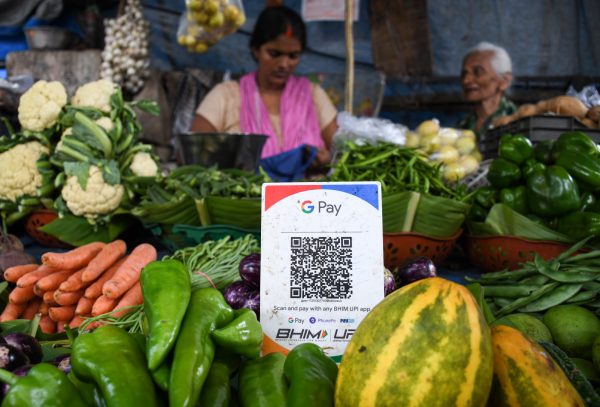The McKinsey Global Institute reported in 2016 that the world’s largest corporations were building digital platforms to manage their suppliers and connect with customers. Public internet platforms like social networks, digital media and e-commerce websites were also emerging. Major internet platforms have since leveraged these trends and monopolised their sectors by generating apps that combine user interface, software and personal data controlled by their own cloud servers.
The use of automation and algorithms radically reduces the marginal costs of adding new interactions, allowing the biggest platforms to support hundreds of millions of global users. Through network effects, platforms offer attractive prices and products that in turn drives their business expansion. The impact this has on competition has been raised by various jurisdictions, such as the Australian Competition and Consumer Commission’s 2019 Digital Platforms Inquiry and the United States’ Stigler Committee on Digital Platforms Report in 2019.
Big technology companies are able to use the data they collect on businesses, consumer tastes and preferences to gain an unfair advantage over their competitors and new market entrants. Technology companies have developed targeted advertising models that use opaque algorithmic systems to create detailed user profiles. Detailed user profiles are linked to the companies’ social media platforms. The addictive design of social media platforms keeps users engaged, providing companies with even more data — further refining the platform’s algorithm.
There is growing concern among regulators about the use of business and consumer information collected by big tech companies like Amazon and Google. To prevent predatory behaviour, platforms could be self-regulated, externally regulated, or co-governed.
To determine the optimal regulatory framework, regulators should examine the involvement of stakeholders in regulating big tech companies alongside learning how companies access, share and use data. This could include developing data exchange standards, refining interaction and collaboration processes between firms and improving data service-level agreements.
Regulators could also look into curtailing the way in which big technology companies make their data an exclusive good for which users and other firms must pay excessive costs to access. Increasing the interoperability of data — when data can be exchanged between different systems and organisations — is one promising antitrust solution.
Companies could be required to hand over personal data to competitors without users losing the services they had accrued on a platform. The ensuing portability and interoperability of personal data across platforms would enable users to trial, share and store their data in new and more innovative digital services.
Regulators could compel companies to allow new entrants to access their company data, ensuring fairer competition. China aims to establish a joint venture company with Chinese technology giants to oversee data collection, break up platform monopolies and curb anti-competitive behaviour. But this may infringe on user privacy.
The reactive approach to data governance must become proactive. Proactive data governance could explore alternative data governance strategies including crowd-sourced data commons, collective bargaining on the rights to personal data, data pooling between organisations and data requisition, which involves formally requesting data from digital platform service providers. Singapore has attempted to balance the need for data governance and technological innovation by enacting personal data protection laws. But overregulation of technology firms and digital platforms could constrain technological innovation, making the digital economy unsustainable in the long run.
In 2019, the Australian government explored introducing greater penalties for the misuse of data under the Privacy Act (which would complement Australian Consumer Law) to create a binding Online Privacy Code. A new Australian Competition and Consumer Commission unit was established to report on digital platform competition and consumer protection. Canberra collaborated with digital platforms and media outlets to develop a voluntary code addressing the imbalances between the two parties.
The European Commission’s 2022 Digital Markets Act attempts to regulate the ability of large digital companies to use their ‘gatekeeper’ powers to restrict or condition access to their market. The 2022 Digital Services Agreement prohibits the use of ‘dark patterns’ — online interfaces designed to manipulate user choices — unless it is permitted by the Unfair Commercial Practices Directive.
The Agreement authorises European Commission and European Union member states to access the algorithms of major online platforms to monitor legal compliance. Platforms that use profiling algorithms in their advertising must describe the recommendation system set out in their terms and conditions. Users must be able to modify the parameters used in recommendation systems, including the ability to select non-profiling parameters.
The expansion of the digital economy is likely to redefine what is considered to be a ‘market.’ In light of this, some European experts are recommending that the enforcement of antitrust laws should be updated for use in the digital economy. Regulation and innovation appear to be on the opposite ends of the data utilisation spectrum, since regulations hindering the use of data are often considered to be a tax on data-intensive industries.
But far from hindering progress, the enforcement of merger and antitrust laws is necessary to improve the digital economy. Regulators ultimately need to calibrate their ‘gatekeeper’ interventions to suit the conditions of different economies. A tailored and proactive approach will prevent predatory and anti-competitive behaviour without deterring digital innovation.
Dr Faizal Bin Yahya is Senior Research Fellow in the Governance and Economy Department at the Institute of Policy Studies, National University of Singapore.

